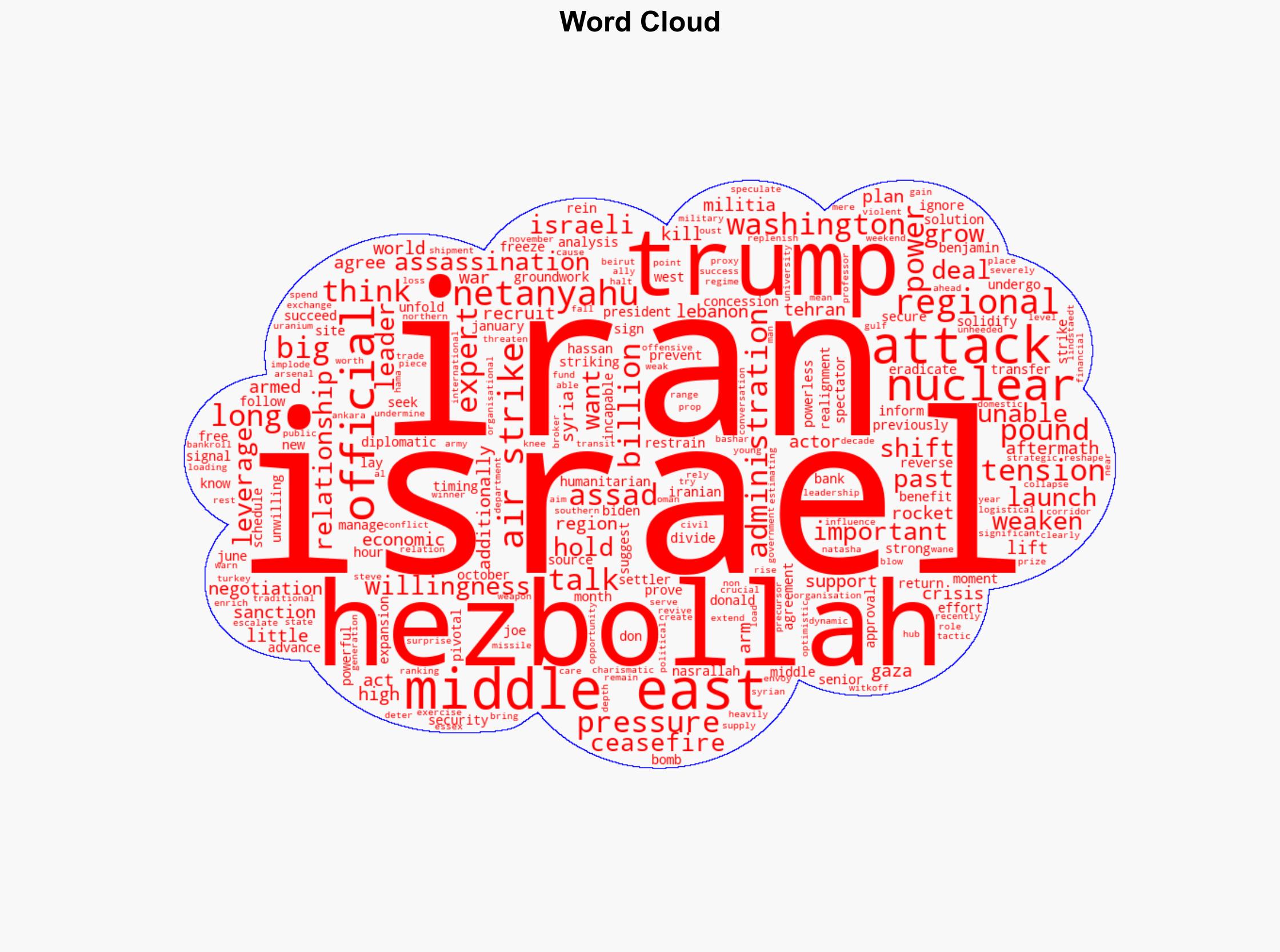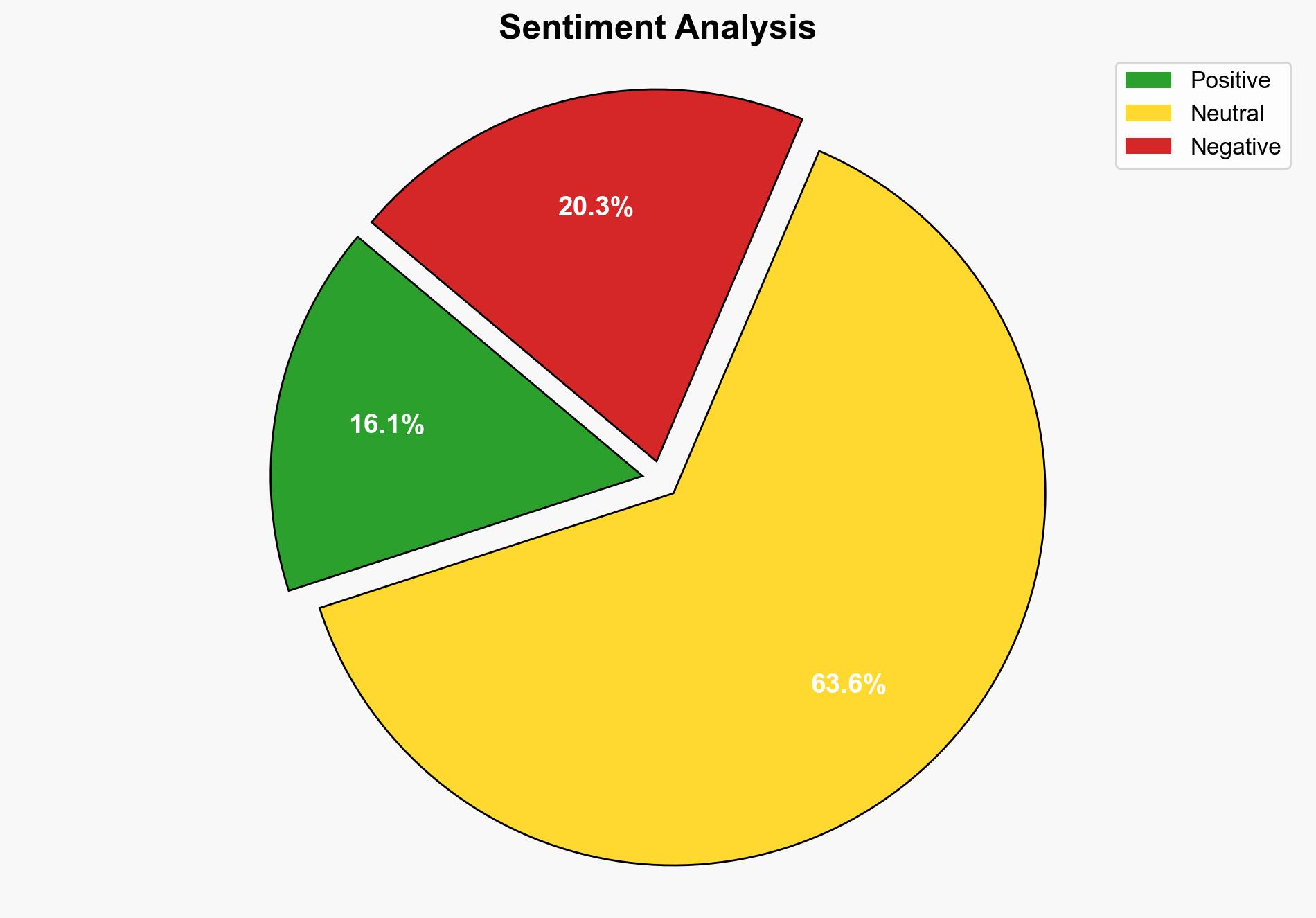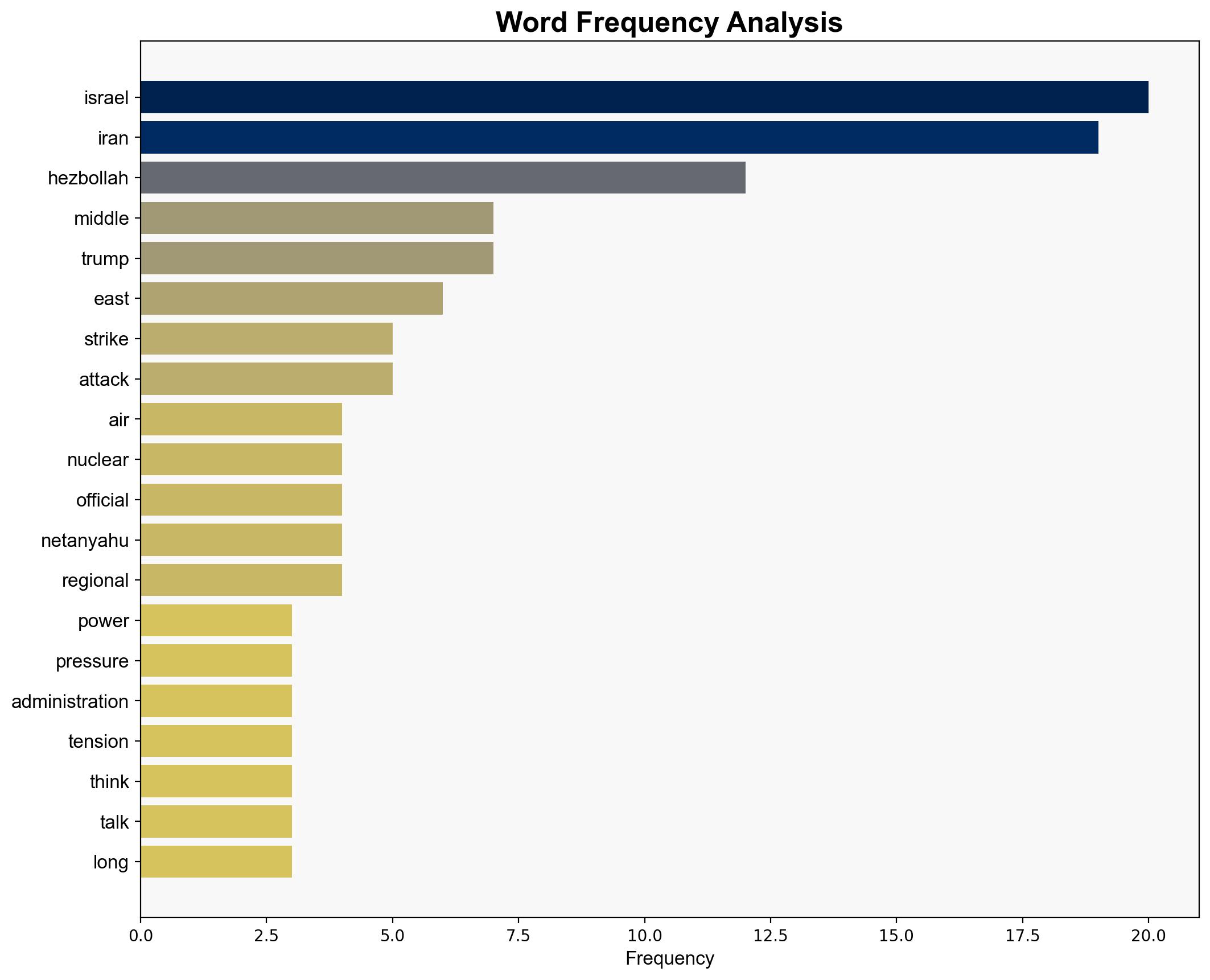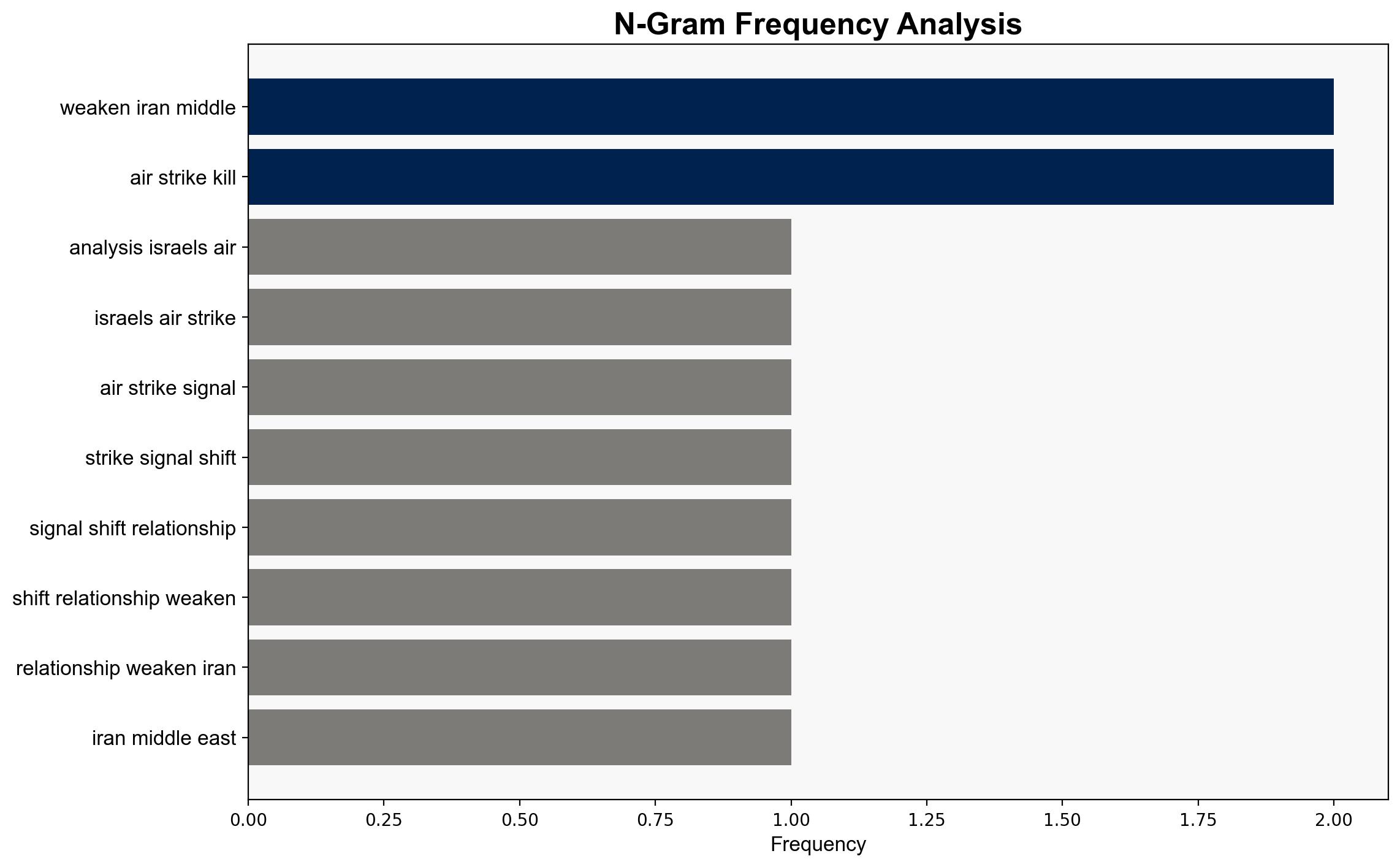The Middle East is undergoing a realignment of power sending the US a signal – ABC News (AU)
Published on: 2025-06-14
Intelligence Report: The Middle East is undergoing a realignment of power sending the US a signal – ABC News (AU)
1. BLUF (Bottom Line Up Front)
The Middle East is experiencing a significant shift in power dynamics, with Israel taking assertive actions against Iran and its proxies, indicating a potential realignment that challenges US influence in the region. This report highlights the strategic implications of these developments and provides recommendations for US policy adjustments to maintain regional stability and influence.
2. Detailed Analysis
The following structured analytic techniques have been applied to ensure methodological consistency:
ACH 2.0
Israel’s recent air strikes and targeted assassinations suggest a strategic intent to weaken Iran’s influence and its proxy networks, such as Hezbollah. This indicates a shift towards more unilateral actions, potentially disregarding US diplomatic efforts.
Indicators Development
Monitoring of military movements and communications suggests increased readiness for further Israeli operations. Digital propaganda and recruitment patterns indicate Hezbollah’s weakened state, impacting Iran’s regional strategy.
Narrative Pattern Analysis
The narrative of Israeli self-reliance and proactive defense is gaining traction, potentially altering regional alliances and perceptions of US commitment to Middle Eastern security.
3. Implications and Strategic Risks
The realignment could lead to increased volatility, with potential for escalated conflict involving Israel, Iran, and proxy forces. Economic sanctions and military actions may further destabilize the region, impacting global markets and security. The US risks losing strategic influence if perceived as unable to mediate effectively.
4. Recommendations and Outlook
- Enhance diplomatic engagement with regional allies to reaffirm US commitment and mediate tensions.
- Increase intelligence-sharing with Israel to better anticipate and manage unilateral actions.
- Consider scenario-based projections:
- Best Case: Successful US-led diplomatic efforts result in renewed negotiations and reduced hostilities.
- Worst Case: Escalation leads to broader regional conflict, straining US resources and alliances.
- Most Likely: Continued low-intensity conflict with periodic escalations, requiring sustained US involvement.
5. Key Individuals and Entities
Benjamin Netanyahu, Hassan Nasrallah
6. Thematic Tags
national security threats, cybersecurity, counter-terrorism, regional focus




